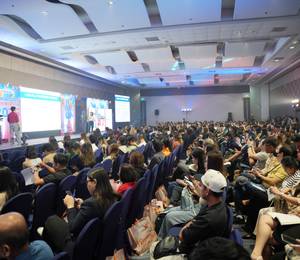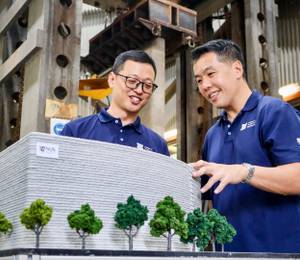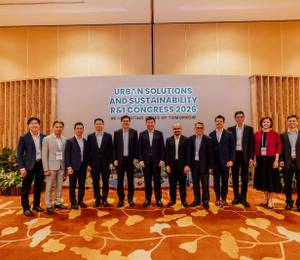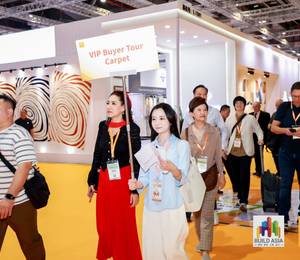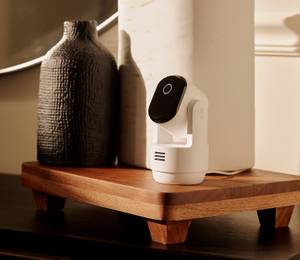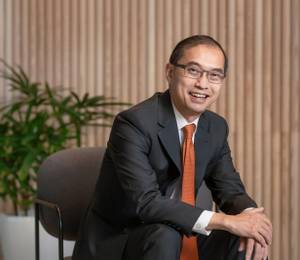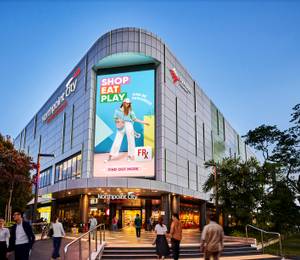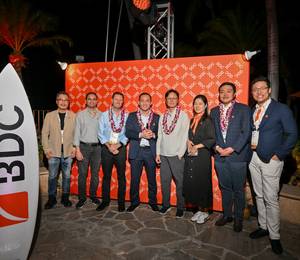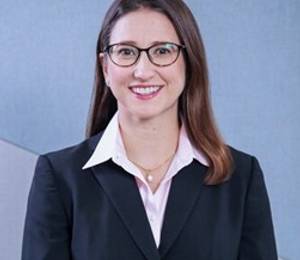Tactical architectural planning is crucial in the curation of memorable spatial experiences. There is a growing need for bespoke solutions, not just for the user, but specific to the context and requirements of a space. In post-pandemic workspace design, there is a need to recognize highly transformative planning methods, where the workspace adapts to the necessities of the changing times. The ability of workspaces to morph and embody a fluid design is evident in this new-age office located in the heart of Gurgaon.
Located at the foothills of the Aravallis, this quaint 1,200 square feet office, designed by Envisage, has an uninterrupted view of the range. The client’s brief expressed the need for an office which transforms effortlessly based on strength of its users and change in function of its space. It was intended to be leased out, giving prospective tenants the freedom to alter the physical space with ease. Equipped with the knowledge required to implement a dynamic design, the designers conceptualised two comprehensible office layouts, each with their own specifications. The varying sensibilities are executed in a singular space, crafting a design that is conducive to change.
The first office layout starts off at the passageway, where the entrance door opens to reveal a chic reception. The tonality of muted interiors with toned down colours is established here, anchored by the reception table which has the *Asterix* logo embossed in MDF, in a concrete finish. A wooden partition that forms the backdrop of the reception, continues on as wooden slats and further opens up the room into a lounge. Behind the wooden partition is the pantry and reprography station and the area in front of the pantry houses six workstations, which enjoy an abundance of natural light from the massive window adjacent to it. An interesting feature is the change in flooring from the lounge to the workstation area, that demarcates the change in functionality of the space. The workstation features herringbone patterned flooring in light grey, with the lounge having wooden planks in the same colour. The same muted colour is also introduced in the furniture through the use of cane.
With people returning to their workspaces, the design needs to make one feel the essence of a home while the worker transitions from home to office.
The wooden partition, clad with veneer, tapers away from the reception into the lounge, naturally broadening the space and allowing natural light to filter in till the checked glass partition on the opposite side of the lounge abutting the passageway. Perpendicular to this wooden partition is a glass partition that runs from the window to the passageway. This forms the main wall to the right of which, lie the cabin and conference rooms. These two rooms are separated by another glass partition with blinds on both sides, for privacy, that also allows light from the window to pass through the cabin into the conference room.
The cabin and conference rooms retain their spaces in the second layout of this office, and hence are the only rooms in the office with false ceiling and fixed ceiling points. The rest of the office displays an exposed ceiling, finished with white paint to soften the appearance. A bare ceiling layout leaves more room to add, subtract and shift elements. The transformative nature of the second layout of the office is reinstated; two more workstations can be added to the ones near the pantry, the lounge can be omitted to accommodate six workstations and the reception can be shifted to the right such that the earlier space becomes a smaller waiting room. The office now houses fourteen workspaces instead of six, an extra waiting room and a promise of timeless design.
Should the tenant wish to switch up the furniture layout, all that is required is moving the loose furniture from the lounge to accommodate for the extra workstations and adding a glass partition to separate the smaller meeting room. The data and electrical lines are set in place and concealed, factoring in electrical connections for both layouts of the space. The fixtures for a workspace of this nature are kept mid-ranged and easy to execute. With veneer on the reception’s back wall and laminate cladded furniture, a module is formed for quick implementation and designed to be leased out. The lights are strategically picked in a combination of high-end and mid-ranged, for their visual appeal and overall aesthetic.
With people returning to their workspaces, the design needs to make one feel the essence of a home while the worker transitions from home to office. Thus, the use of muted colours and the use of cane in multiple places was a way to get the right balance between a workspace and home. The future of office design in a post-pandemic scenario requires it to be highly customisable, quick to execute and economical in its initial cost of design. The elements and construction are kept minimal and favourable to improve, to “maximise” the design and lease out as and when required. The design recognizes growth and the multi-faceted nature of a transformative office.
PROJECT DETAILS
Project Name: Sequoia
Typology: Residence
Project Location: Aravallis, Gurugram, India
Client: Astrix Office
Architect: Envisage
Built-up Area: 900 square feet
Start Date: July 2021
Completion Date: October 2021
Photographer: Suryan and Dang
